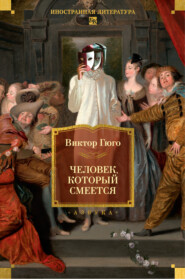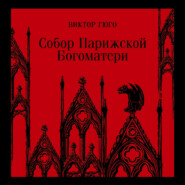По всем вопросам обращайтесь на: info@litportal.ru
(©) 2003-2024.
✖
Les Misérables, v. 2
Настройки чтения
Размер шрифта
Высота строк
Поля
At the spot where this lamentable disaster occurred, all was now silence. The hollow way was filled with an inextricable pile of horses and their riders. There was no slope now, for the corpses levelled the road with the plain, and came up flush to the top, like a fairly measured bushel of barley. A pile of dead atop, a stream of blood at bottom, – such was the road on the night of June 18, 1815. The blood ran as far as the Nivelles road, and extravasated there in a wide pool, in front of the barricade, at a spot which is still pointed out. It will be remembered that the destruction of the cuirassiers took place at the opposite point, near the Genappe road. The depth of the corpses was proportionate to that of the hollow way; toward the middle, at the spot where Delord's division passed, the layer of dead was thinner.
The nocturnal prowler, at whom we have allowed the reader a glance, proceeded in that direction, searching this immense tomb. He looked around and held a hideous review of the dead; he walked with his feet in the blood. All at once he stopped. A few paces before him in the hollow way, at the point where the pile of dead ended, an open hand, illumined by the moon, emerged from a heap of men and horses. This hand had on one finger something that glittered, and was a gold ring. The man bent down, and when he rose again there was no longer a ring on this finger. He did not exactly rise; he remained in a savage and shy attitude, turning his back to the pile of dead, investigating the horizon, supporting himself on his two forefingers, and his head spying over the edge of the hollow way. The four paws of the jackal are suited for certain actions. Then, making up his mind, he rose, but at the same moment he started, for he felt that some one was holding him behind. He turned and found that it was the open hand, which had closed and seized the skirt of his coat. An honest man would have been frightened, but this one began laughing.
"Hilloh!" he said, "it is only the dead man. I prefer a ghost to a gendarme."
The hand, however, soon relaxed its hold, for efforts are quickly exhausted in the tomb.
"Can this dead man be alive?" the marauder continued; "let me have a look."
He bent down again, removed all the obstacles, seized the hand, liberated the head, pulled out the body, and a few minutes later dragged an inanimate or at least fainting man into the shadow of the hollow way. He was an officer of cuirassiers of a certain rank, for a heavy gold epaulette peeped out from under his cuirass. This officer had lost his helmet, and a furious sabre-cut crossed his face, which was covered with blood. He did not appear, however, to have any bones broken, and through some fortunate accident, – if such a word be possible here, – the dead had formed an arch over him so as to save him from being crushed. His eyes were closed. He had on his cuirass the silver cross of the Legion of Honor, and the prowler tore away this cross, which disappeared in one of the gulfs he had under his blouse. After this he felt the officer's fob, found a watch, and took it; then he felt in his pockets and drew from them a purse. When he was at this stage of the assistance he was rendering the dying man, the officer opened his eyes.
"Thanks," he said feebly.
The roughness of the man's movements, the freshness of the night, and the freely inhaled air had aroused him from his lethargy. The prowler did not answer, but raised his head. A sound of footsteps could be heard on the plain; it was probably some patrol approaching. The officer murmured, for there was still the agony of death in his voice, —
"Who won the battle?"
"The English," the marauder answered.
The officer continued, —
"Feel in my pockets; you will find a purse and a watch, which you can take."
Though this was already done, the prowler did what was requested, and said, —
"There is nothing in them."
"I have been robbed," the officer continued; "I am sorry for it, as I meant the things for you."
The footsteps of the patrol became more and more distinct.
"Some one is coming," the marauder said, preparing to go away.
The officer, raising his arm with difficulty, stopped him.
"You have saved my life; who are you?"
The prowler answered rapidly and in a low voice.
"I belong, like yourself, to the French army; but I must leave you, for if I were caught I should be shot. I have saved your life, so now get out of the scrape as you can."
"What is your rank?"
"Sergeant."
"Your name?"
"Thénardier."
"I shall not forget that name," the officer said; "and do you remember mine; it is Pontmercy."
BOOK II
THE SHIP ORION
CHAPTER I
NO. 24,601 BECOMES NO. 9430
Jean Valjean was recaptured. As our readers will probably thank us for passing rapidly over painful details, we confine ourselves to the quotation of two paragraphs published by the newspapers of the day, a few months after the occurrence of the surprising events at M – . These articles are rather summary, but it must be remembered that no Gazette des Tribunaux existed at that period. The first we take from the Drapeau Blanc, dated July 25, 1823.
"A bailiwick of the Pas de Calais has just been the scene of an uncommon event. A man, who was a stranger to the department and called M. Madeleine, had some years previously revived by a new process an old local trade, – the manufacture of jet and black beads. He made his own fortune, and, let us add, that of the bailiwick, and in acknowledgment of his services he was appointed Mayor. The police discovered that M. Madeleine was no other than an ex-convict, who had broken his ban, condemned in 1796 for robbery, of the name of Jean Valjean. He has been sent back to the Bagne. It appears that prior to his arrest he succeeded in withdrawing from M. Lafitte's a sum of more than half a million, which he had banked there, and which it is said that he had honestly acquired by his trade. Since his return to Toulon futile efforts have been made to discover where this amount is concealed."
The second article, which is rather more detailed, is extracted from the Journal de Paris of the same date: —
"An ex-convict of the name of Jean Valjean has just been tried at the Var assizes, under circumstances which attract attention. This villain had succeeded in deceiving the vigilance of the police, and had behaved so cleverly as to be made Mayor of one of our small towns in the north, where he established a rather considerable trade. He was at length unmasked, and arrested through the indefatigable zeal of the public authorities. He had, as his concubine, a girl of the town, who died of a fit at the moment of his arrest. This scoundrel, who is endowed with Herculean strength, managed to escape but three or four days later the police again captured him in Paris, at the moment when he was entering one of those small coaches which run from the capital to the village of Montfermeil (Seine et Oise). It is said that he took advantage of these three or four days of liberty to withdraw from one of our chief bankers an amount estimated at six or seven hundred thousand francs. According to the indictment he buried it at some spot only known to himself, and it has not been found; but however this may be, this Jean Valjean has just been tried at Var assizes for a highway robbery committed with violence some eight years ago upon one of those honest lads, who, as the patriarch of Ferney has said in immortal verse, —
'De Savoie arrivent tous les ans
Et dont la main légèrement essuie
Ces longs canaux engorgés par la suie.'
This bandit made no defence, but it was proved by the skilful and eloquent organ of public justice that Jean Valjean was a member of a band of robbers in the south. Consequently Valjean was found guilty and sentenced to death. The criminal refused to appeal to the Court of Cassation, but the King, in his inexhaustible mercy, deigned to commute his sentence into penal servitude for life. Jean Valjean was immediately removed to the galleys at Toulon."
It will not be forgotten that Jean Valjean had displayed religious tendencies at M – , and some of the papers, among them the Constitutionnel, regarded this commutation as a triumph of the Priest party. Jean Valjean changed his number at Toulon, and was known as 9430. Let us state here once and for all that with M. Madeleine the prosperity of M – disappeared: all he had foreseen in his night of hesitation and fever was realized; his absence was in truth the absence of the soul. After his fall there took place at M – that selfish division of great fallen existences, that fatal break-up of flourishing things, which is daily accomplished obscurely in the human community, and which history has only noticed once because it occurred after the death of Alexander. Lieutenants crown themselves kings; overseers suddenly became manufacturers, and envious rivalries sprang up. M. Madeleine's large work-shops were shut up; the buildings fell into a ruinous condition, and the artisans dispersed, some leaving the town, others the trade. All was henceforth done on a small scale instead of a large one, for lucre instead of the public welfare. There was no centre, but on all sides violent competition. M. Madeleine had commanded and directed everything. When he fell, a spirit of contest succeeded that of organization, bitterness succeeded cordiality, and mutual hatred the good-will of the common founder. The threads tied by M. Madeleine became knotted and broken; the process was falsified, the articles became worse, and confidence was destroyed; the outlets diminished, and there were fewer orders; wages fell, there were stoppages, and lastly came bankruptcy.
The State itself perceived that some one had been crushed somewhere, for less than four years after the sentence of the court identifying M. Madeleine and Jean Valjean, to the profit of the galleys, the cost of collecting the taxes was doubled in the bailiwick of M – . M. de Villèle made a remark to that effect in the House in February, 1827.
CHAPTER II
TWO LINES OF A DOUBTFUL ORIGIN
Before going further we will enter into some details about a strange fact that occurred at about the same period at Montfermeil, and which may possibly possess some coincidence with certain police conjectures. There is at Montfermeil a very old superstition, which is the more curious and valuable because a popular superstition in the neighborhood of Paris is like an aloe-tree in Siberia. We are of those who respect everything which is in the condition of a rare plant. This, then, is the Montfermeil superstition: it is believed that from time immemorial the fiend has selected the forest as the spot where he buries his treasure. Old women declare that it is not rare to meet at nightfall, and in remote parts of the forest, a black man resembling a wagoner or wood-cutter, dressed in wooden shoes and canvas trousers and blouse, and recognizable from the fact that he has on his head two enormous horns in place of cap or hat. This man is usually engaged in digging a hole, and there are three modes of action in the event of meeting him. The first is to go up to the man and address him; in that case you perceive that he is simply a peasant, that he appears black because it is twilight, that he is not digging a hole, but cutting grass for his kine, and that what you had taken for horns is nothing but a dung-fork he carries on his back, whose prongs seem to grow out of his head. You go home and die within the week. The second plan is to watch him, wait till he has dug his hole and filled it up and gone away; then you run up to the hole and take out the treasure which the black man had necessarily deposited in it. In this case you die within the month. The last way is not to speak to the black man at all, not to look at him, but run away at full speed, and you die within the year.
All three modes have their inconveniences; but the second, which offers at any rate some advantages, among others that of possessing a treasure, if only for a month, is the one most generally adopted. Bold men whom chances tempt have consequently, so it is declared, frequently reopened the hole dug by the black man, and robbed the demon. It seems, however, as if the profits are small; at any rate if we may believe tradition, and particularly and especially two enigmatical lines in dog Latin, which a wicked Norman monk, a bit of a sorcerer, and of the name of Tryphon, left on the subject. This Tryphon lies at St. George's Abbey at Bocherville near Rouen, and frogs are born on his tomb. A man makes enormous exertions, then, for the holes are generally very deep: he perspires, works the whole night through (for the operation must be carried out at night), gets a wet shirt, burns out his candle, breaks his pick, and when he at last reaches the bottom of the hole and lays his hand on the treasure, what does he find? What is the fiend's treasure? A sou, at times a crown-piece, a stone, a skeleton, a bleeding corpse, or a spectre folded up like a sheet of paper in a pocket-book, and sometimes nothing at all! This appears to be revealed to the searchers by Tryphon's lines, —
"Fodit et in fossâ thesauros condit opacâ,
As, nummos, lapides, cadaver, simulacra, nihilque."
It seems that in our days there are also found sometimes a gunpowder flask and balls, or an old pack of greasy, dirty cards which have evidently been used by the fiends. Tryphon does not record these two facts, because he lived in the 12th century, and it does not appear that the fiend had the sense to invent gunpowder before Roger Bacon, or playing cards before Charles VI. If you play with the cards you are safe to lose all you possess; while the gunpowder displays the peculiarity of making your gun burst in your face.
A very short time after the period when it occurred to the police that Jean Valjean during his four days of liberty had been prowling round Montfermeil, it was noticed in the same village that a certain old road-mender of the name of Boulatruelle was "up to his tricks" in the forest. It was believed generally that this Boulatruelle had been to the galleys: he was to some extent under police inspection, and as he could not find work anywhere, the administration employed him at a low wage as mender of the cross-road from Gagny to Lagny. This Boulatruelle was a man looked on askance by the villageois, as he was too respectful, too humble, ready to doff his cap to everybody, trembling and fawning before the gendarmes, and probably allied with the robbers, so it was said, and suspected of lurking about the roads after dark. The only thing in his favor was that he was a drunkard.
This is what people fancied that they noticed. For some time past Boulatruelle had left work at an early hour, and gone into the forest with his pickaxe. He was met toward evening in the most desolate clearings, in the wildest thickets, apparently seeking something, and at times digging holes. The old women who passed at first took him for Beelzebub, and when they recognized Boulatruelle did not feel at all more easy in mind. Such meetings greatly annoyed Boulatruelle, and hence it was plain that he tried to hide himself, and that there was a mystery in what he was doing. It was said in the village, "It is clear that the fiend has made his appearance. Boulatruelle saw him, and is seeking; well, he is cunning enough to pocket Lucifer's treasure." The Voltairians added: "Will Boulatruelle cheat the devil, or the devil cheat Boulatruelle?" while the old women crossed themselves repeatedly. Boulatruelle, however, discontinued his forest rambles, and regularly resumed his work, whereupon something else was talked about. Some persons, however, remained curious, thinking that there was probably in the affair, not the fabulous treasure of the legend, but something more palpable and tangible than the fiend's bank-notes, and that the road-mender had doubtless found out half the secret. The most puzzled were the schoolmaster and Thénardier the publican, who was everybody's friend, and had not disdained an intimacy with Boulatruelle.
"He has been to the galleys," Thénardier would say. "Well, good gracious! we do not know who is there, or who may go there."
One evening the schoolmaster declared that in other times the authorities would have inquired what Boulatruelle was about in the wood, and that he would have been obliged to speak; they would have employed torture if necessary, and Boulatruelle would not have resisted the ordeal of water, for instance. "Let us give him the ordeal of wine," said Thénardier. They set to work, and Boulatruelle drank enormously, but held his tongue. He combined, with admirable tact and in magisterial proportions, the thirst of a sponge with the discretion of a judge. Still, by returning to the charge, and by putting together the few obscure words that escaped him, this is what Thénardier and the schoolmaster fancied that they could make out.

















